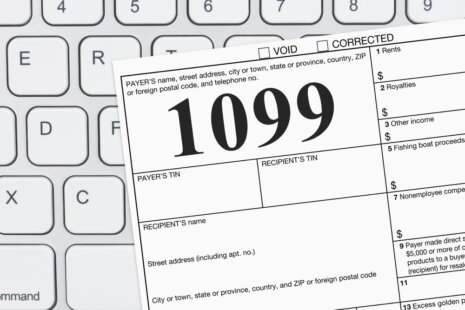Yes, the IRS can come after you personally for business taxes under certain circumstances.
Here are some scenarios in which the IRS may pursue individual business owners or officers for business tax liabilities…
- Sole Proprietorships and Single-Member LLCs – In a sole proprietorship or a single-member LLC, the business owner is personally responsible for all business debts and liabilities, including taxes. This means that the IRS can pursue collection actions against the individual owner to satisfy the business’s tax obligations.
- Tax Debts as Trust Fund Taxes – In businesses that withhold taxes from employee wages (such as federal income tax, Social Security tax, and Medicare tax) or collect sales taxes from customers, these taxes are considered “trust fund” taxes. If the business fails to remit these taxes to the IRS or relevant tax authorities, the responsible individuals, such as owners, officers, or employees, may be held personally liable for the unpaid trust fund taxes.
- Fraud or Misconduct – If the IRS determines that there was fraud, intentional misconduct, or gross negligence on the part of the business owners or officers in relation to tax matters, it may seek to hold those individuals personally liable for the resulting tax debts.
- Piercing the Corporate Veil – In certain cases, the IRS may attempt to “pierce the corporate veil” and hold individual owners or officers personally liable for the business’s tax debts. This typically occurs when there is evidence of commingling of personal and business finances, failure to observe corporate formalities, or other factors that indicate abuse of the corporate structure.
- Responsible Person Assessments – The IRS has the authority to assess a “responsible person” personally for unpaid payroll taxes (also known as Trust Fund Recovery Penalties or TFRP). This assessment can apply to officers, directors, and employees who have the authority to direct the payment of payroll taxes but willfully fail to do so.
While forming a business entity such as a corporation or LLC can provide limited liability protection to its owners or officers, there are circumstances in which the IRS can pursue individual business owners or officers for unpaid business taxes. It’s essential for business owners and officers to ensure compliance with tax laws and regulations and address any tax liabilities promptly to avoid personal liability and potential legal and financial consequences. Consulting with a tax professional or legal advisor can help navigate complex tax issues and mitigate risks associated with IRS enforcement actions.




